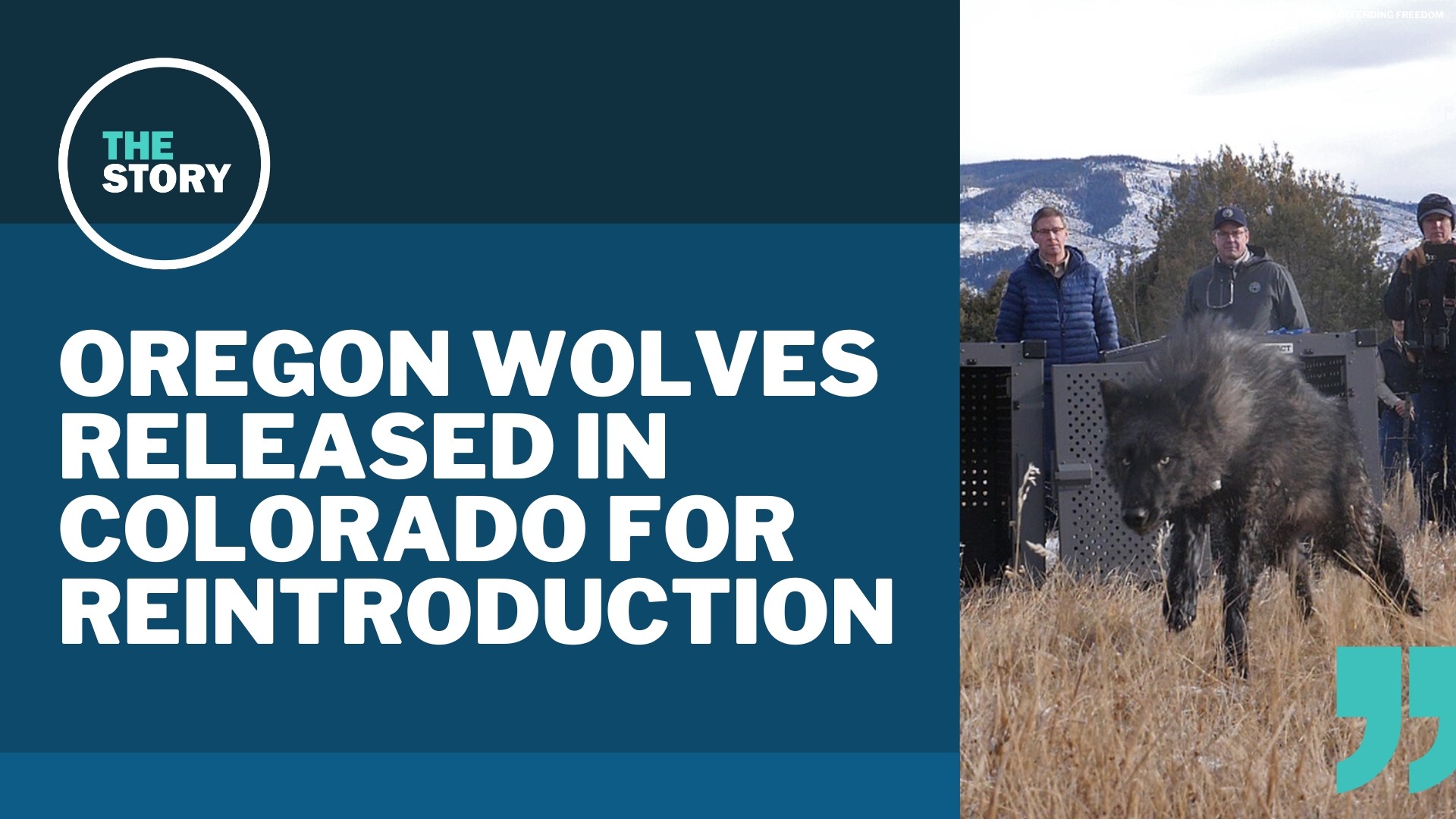PORTLAND, Ore. —
Five gray wolves from Oregon were released in Colorado on Monday, marking the return of a species that has been absent from the Rocky Mountain state for decades.
Colorado differs from other Western states where wolves have been reintroduced in that the wolves there were brought in by voters, not federal wildlife managers.
“This is an incredibly important historical moment,” said Joanna Lambert, professor of wildlife ecology and director of the Canid Center at the University of Colorado. “This is the first time in U.S. history that an endangered species is being reintroduced into an area of its former range by an entity other than U.S. Fish and Wildlife or the federal government.”
The five wolves — two juvenile females, two juvenile males and one adult male — were captured in Wallowa and Union counties, the heart of Oregon wolf country, over the weekend.
The animals were sedated from helicopters, then measured, vaccinated and fitted with tracking collars before they were loaded into crates and put on a plane for Colorado.
On Monday, they were released in Grand County, west of Boulder.
“Today, history was made in Colorado,” Colorado Governor Jared Polis said in a statement. “For the first time since the 1940s, the howl of wolves will officially return to western Colorado.”
Wolves were eradicated in much of the West throughout the first half of the 20th century. State and federal governments implemented bounty programs on the animals, fearing the threat they posed to livestock.
And in many areas, that sentiment remains.
“There has been really no reintroduction of wolves anywhere that has not had with it the inertia of controversy,” Lambert acknowledged.
Wolves, and their reintroduction, have become a political flashpoint in the West. In Colorado, ranchers sued to block the release of the Oregon wolves, but a judge ruled against them last week, setting the stage for Monday’s release.
Lambert said that while there are passionate voices on either side of the debate, either loving wolves or wanting them gone, the issue for most people is a little more nuanced.
“The reality is, for the most part, folks are falling somewhere in between,” she said.
Even with a voter mandate, though, it was unclear if Colorado was going to be able to find the wolves it needed. Neighboring states with larger wolf populations — like Idaho, Montana and Wyoming — were unwilling to let Colorado export any of their wolves.
Oregon is home to a minimum of 178 wolves, according to the state’s most recent numbers, so should Oregonians be worried that Colorado is taking too many?
Lambert said no.
“Wolves do well given half a chance,” she said. “Populations do recruit and do increase. They are a very adaptable, flexible species.”
Colorado is hoping to relocate another five to 10 wolves by March with as many 50 being released in the state over the coming years.
For Lambert, who said the world is facing an extinction crisis with apex predators like the wolf seeing greater threats than other species, seeing the wolf return to its native range in Colorado was a small step in the right direction.
“We need to be thinking about our subsequent generations and what we are leaving behind for our young people,” she said. “This is not just about putting 10 wolves back into western Colorado. This is something that is directly addressing a sense of we can do something about what we are losing on Earth.”

